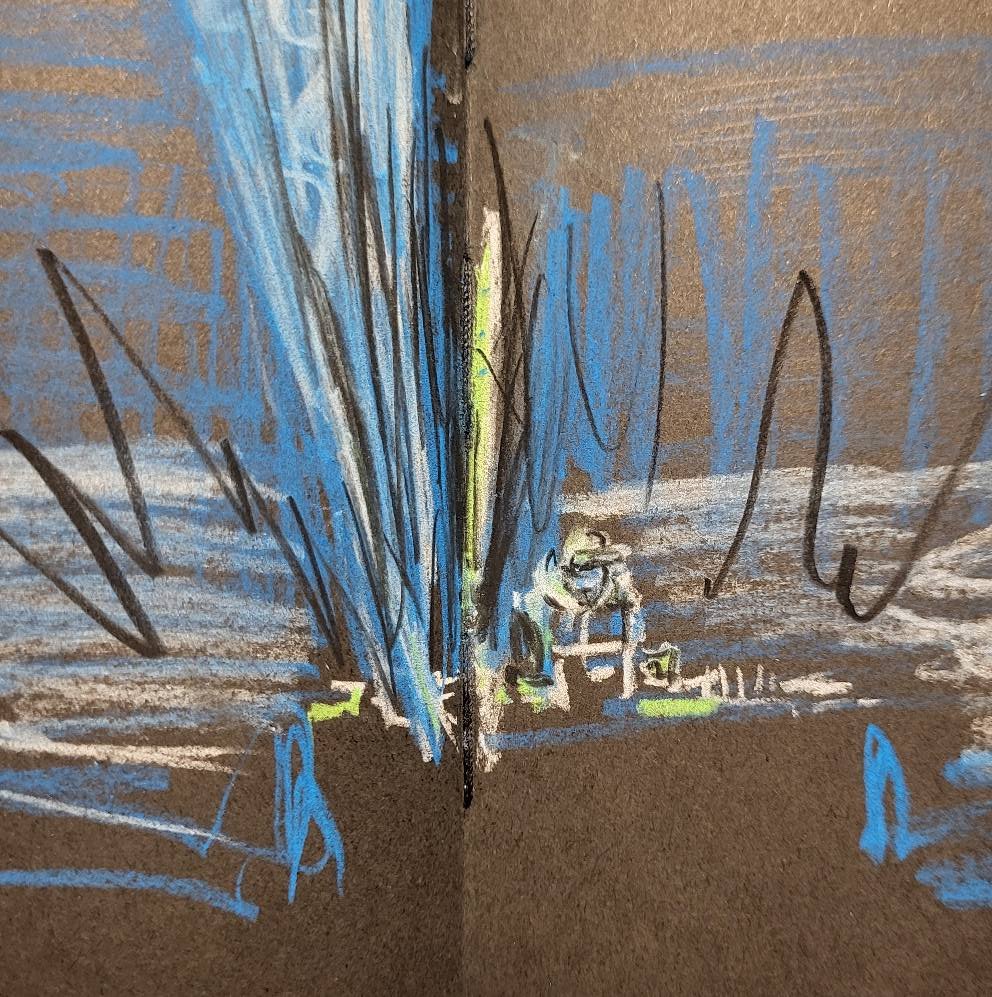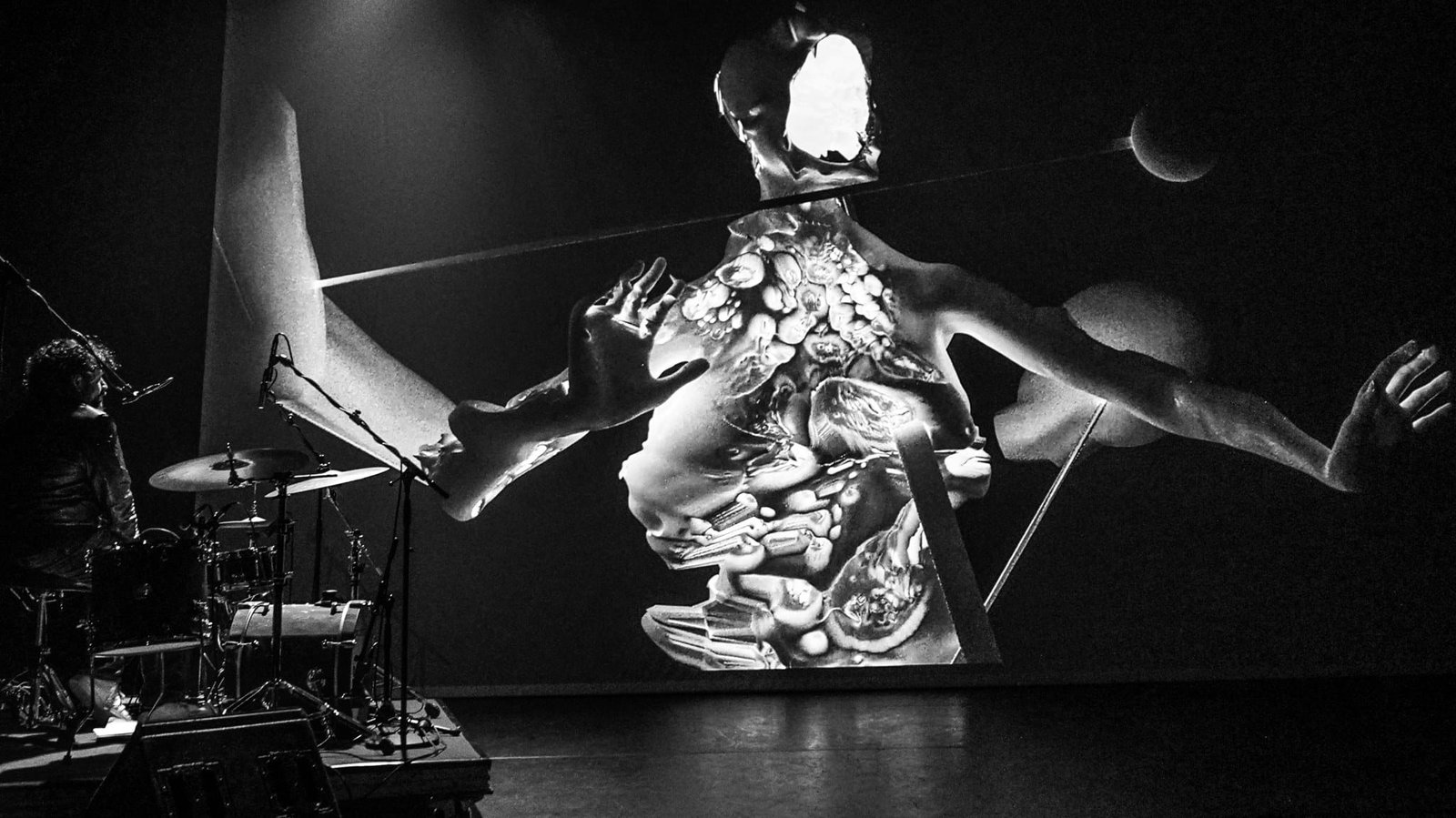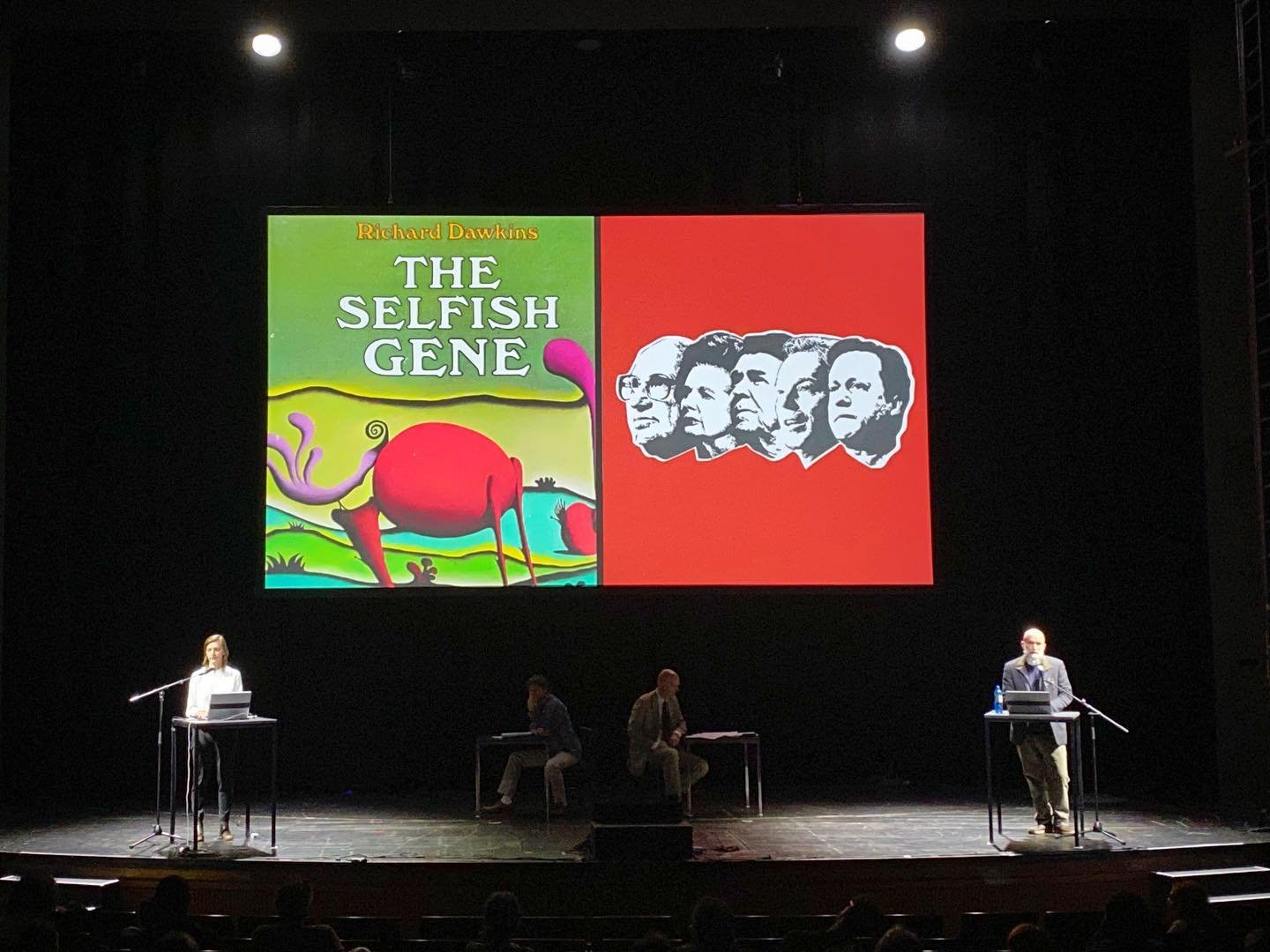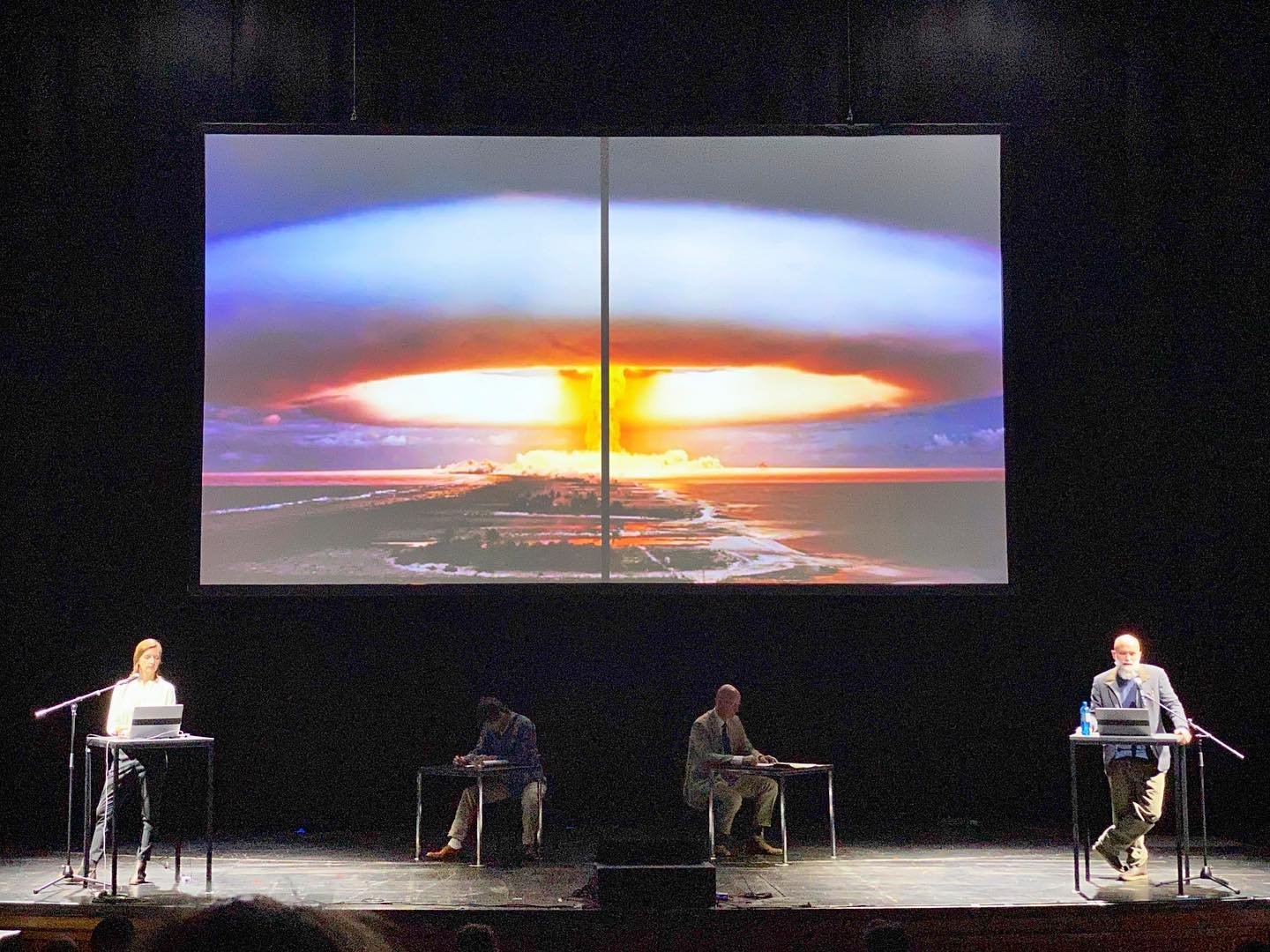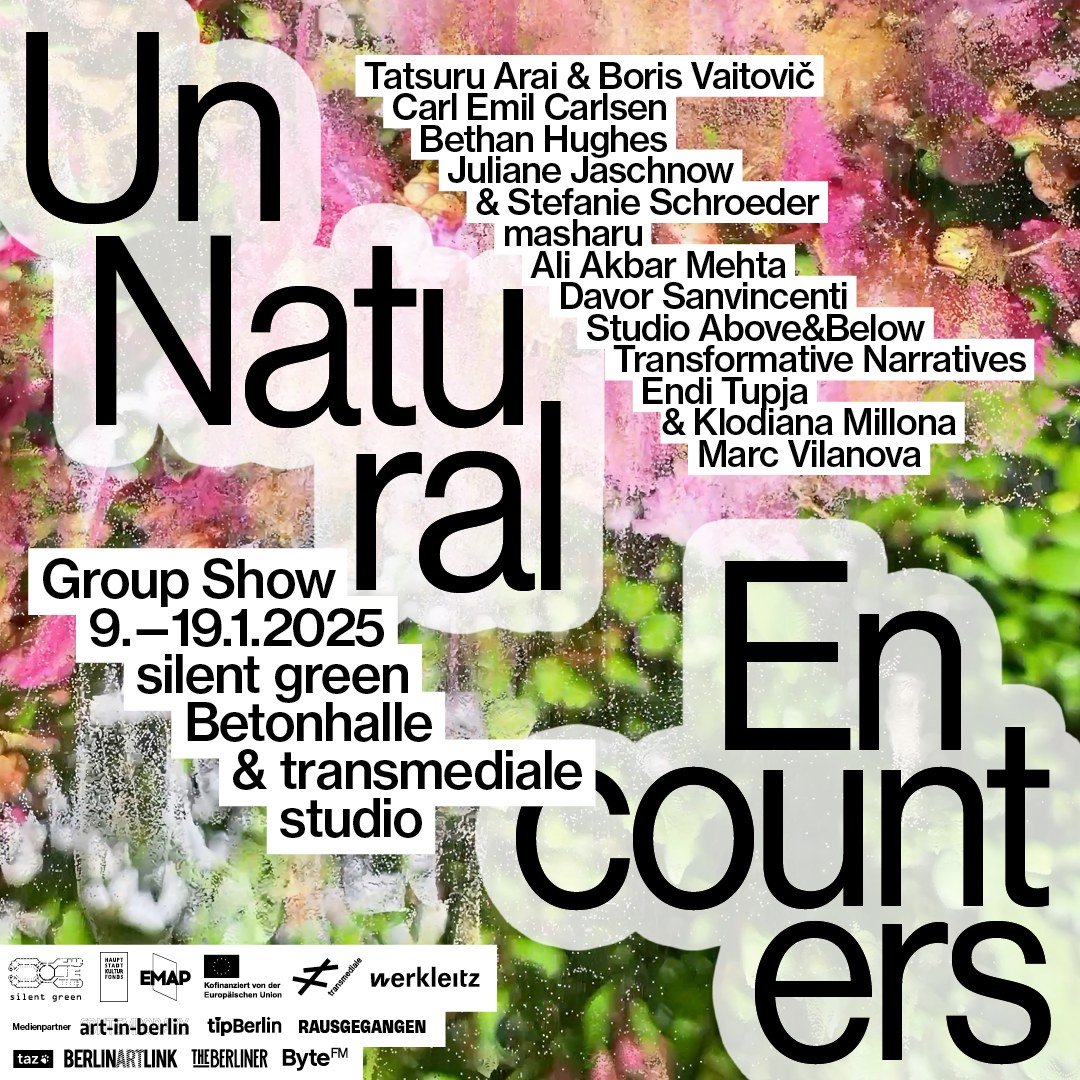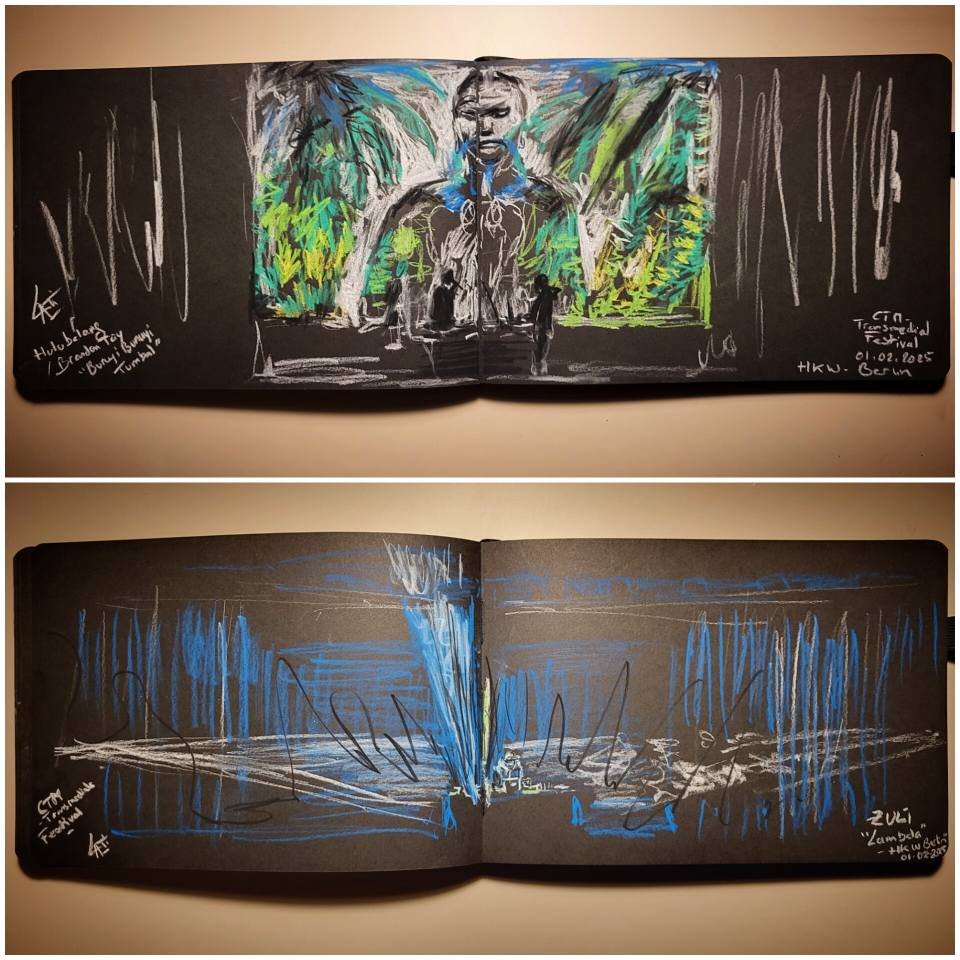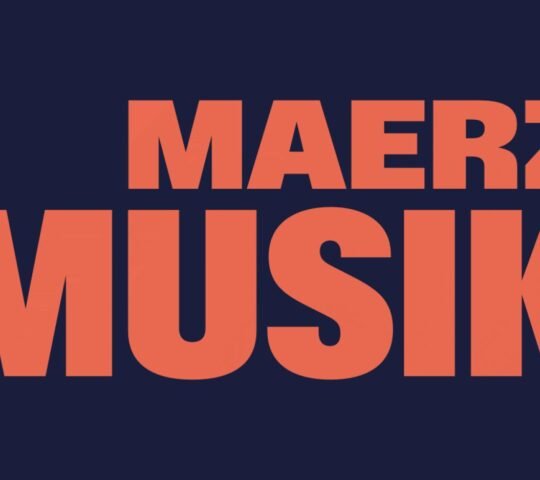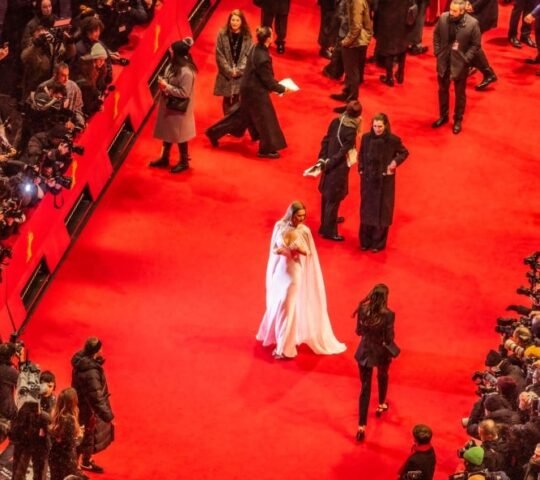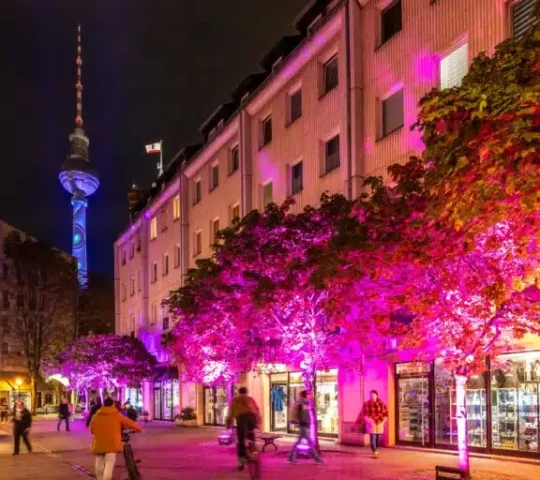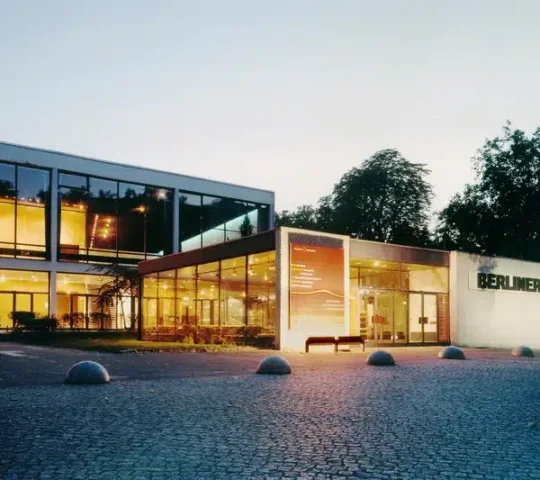Transmediale Festival – Germany 2026
Background & History
- Origins: Founded in 1988 as the VideoMediale Festival in Karlsruhe, Germany, it initially focused on video art and media culture. It quickly became a platform for exploring the intersections of art, technology, and society.
- Tradition and Significance: Transmediale has evolved into a leading international festival for art, digital culture, and media, emphasizing critical engagement with technology’s impact on contemporary life. It serves as a space for artists, theorists, activists, and technologists to interrogate digital systems, cosmologies, and societal structures.
- Growth Over Time: By 1997, it relocated to Berlin, adopting the name transmediale to reflect its broader scope encompassing multimedia, internet, and software art. In 1999, club transmediale (now the independent CTM Festival) was introduced as a side event for electronic music. The festival expanded in 2001 with new venues like the Haus der Kulturen der Welt and has since grown to attract over 25,000 visitors annually from around the world.
- Cultural Impact: Recognized as a flagship cultural institution by the German Federal Cultural Foundation since 2004, transmediale fosters interdisciplinary dialogue and innovation. It has become a key event in Europe’s cultural calendar, influencing discussions on media art, digital ethics, and post-digital aesthetics, while supporting emerging artists through residencies and year-round programs.
- Modern Developments: In 2006, the subtitle shifted to “festival for art and digital culture” to include everyday life and technology. Today, it operates as a year-round platform with initiatives like the Vilém Flusser Residency, transmediale/journal publications, and the Vorspiel pre-festival program in collaboration with CTM and Berlin’s art scene.
- Legacy and Recognition: Over 39 editions, it has hosted groundbreaking works, panels, and exhibitions, earning accolades like the EFFE Label and integration into events such as the European Capital of Culture – Pafos2017.
Event Highlights
- Main Activities or Performances:
- Exhibitions: A central curated exhibition titled “By the Mango Belt & Tamarind Road,” featuring artistic practices like ‘compassing,’ ‘metaphoring,’ and ‘protocoling’ to reconfigure systems and technologies, exploring themes of hunger, imagination, and root codes of digital cultures.
- Discourse Formats: Panels, talks, and workshops with artists, curators, and scholars discussing digital cosmologies, AI ethics, post-colonial tech narratives, and sustainable media practices.
- Performances and Screenings: Live audiovisual performances, film screenings, and interactive installations blending art, sound, and digital media, often in collaboration with the CTM Festival for hybrid events.
- Workshops and Residencies: Hands-on sessions on experimental media tools, VR/AR art, and critical making, building on the Vilém Flusser Residency Program.
- Special Traditions or Features:
- Annual thematic focus, with 2026 emphasizing reconfiguration through metaphors and protocols, linking diverse cultural recipes to technological root codes.
- Integration with Berlin’s art ecosystem via Vorspiel, a pre-festival network of events across galleries and independent spaces.
- Closing events often include immersive performances and networking parties, fostering community among global creatives.
- Unique Attractions for Visitors:
- Overlap with CTM Festival (January 23 – February 1, 2026), allowing seamless transitions between daytime digital art exhibitions and evening electronic music performances.
- Interactive installations inviting audience participation in exploring themes like digital hunger and cosmological metaphors.
- Year-round extensions like the transmediale/journal online publications and collaborative projects with international networks.
- Opportunities for emerging artists through open calls, residencies, and mentorships, highlighting underrepresented voices in digital culture.
Date & Duration
- Dates: January 28 – February 1, 2026
- Duration: 5 days
- Opening Hours:
- Wednesday–Friday (January 28–30): 11:00 AM – 10:00 PM (exhibitions and events).
- Saturday (January 31): 11:00 AM – 11:00 PM.
- Sunday (February 1): 11:00 AM – 6:00 PM.
- Evening performances and talks may extend later; check program for specifics.
Venue / Location
- City: Berlin, Germany
- Main Venue: Silent Green Kulturquartier, Gerichtstraße 8, 13347 Berlin (Wedding district), serving as the primary hub for exhibitions, talks, and performances.
- Notable Areas within Venue:
- Exhibition halls for immersive digital art installations.
- Betonhalle (concrete hall) for performances and screenings.
- Outdoor spaces and adjacent areas for workshops and networking.
- Additional venues may include Haus der Kulturen der Welt (John-Foster-Dulles-Allee 10, 10557 Berlin) for special events and collaborations.
- Other Locations: Distributed across Berlin, including partner sites like radialsystem (Holzmarktstraße 25, 10243 Berlin) for hybrid CTM/transmediale events, and various galleries during Vorspiel.
- Google Maps Address: Silent Green Kulturquartier, Gerichtstraße 8, 13347 Berlin, Germany
Ticket Information
- How Tickets Are Sold:
- Online via the official website (transmediale.de/tickets) using platforms like Eventim or direct e-ticketing.
- On-site at venue box offices during festival hours, subject to availability.
- Festival passes and day tickets available; group discounts for 10+ via email to info@transmediale.de.
- Advance purchase recommended, as popular events sell out quickly.
- Admission Type:
- Paid for most events; some workshops and Vorspiel activities may be free or donation-based.
- Ticket Pricing (USD):
- Day Ticket: $21.60 (€20).
- Festival Pass (Full Access): $97.20 (€90, unlimited entry to exhibitions, talks, and screenings).
- Concession (Students, Seniors, Unemployed): $13.50 (€12.50) for day tickets; $64.80 (€60) for festival pass.
- Single Event Tickets (Performances/Workshops): $16.20–$32.40 (€15–€30).
- Group Tickets: From $18.00 (€16.70 per person for 10+).
- Free/Donation: Select Vorspiel events and public talks.
- Minimum and Maximum Ticket Pricing:
- Minimum: $0 (free Vorspiel events or donations).
- Maximum: $97.20 (full festival pass).
- Special Seating or VIP Options:
- Festival pass includes priority access to performances and reserved seating in main halls.
- VIP packages (if available) may offer lounge access and artist meet-and-greets, priced at $130+ (€120+); contact info@transmediale.de.
- Accessible seating for wheelchair users and reserved areas for groups upon request.
Contact Information
- Email:
- General Inquiries: info@transmediale.de
- Ticketing and Bookings: tickets@transmediale.de
- Press Inquiries: press@transmediale.de
- Exhibitor/Artist Applications: program@transmediale.de
- Volunteers: volunteer@transmediale.de (opportunities TBD)
- Phone:
- General: +49 30 959994231
- Office: +49 30 24749761
- Fax: +49 30 24749763
- Website: transmediale.de, transmediale.de/tickets for bookings
- Social Media:
- Instagram: @transmediale
- Twitter/X: @transmediale
- Facebook: @transmediale
- YouTube: Transmediale Festival
- Key Staff:
- Artistic Director: Not specified for 2026; previous curators include Andreas Broeckmann (2001–2011).
- Festival Organizer: transmediale e.V., funded by Kulturstiftung des Bundes.
- Press/Volunteers:
- Press: Email press@transmediale.de for accreditation and releases.
- Volunteers: Apply via volunteer@transmediale.de; roles include ushering, tech support (details announced fall 2025).
- Note: Response time ~24–48 hours. English and German support available; multilingual for international inquiries.
Cultural Experience
- Traditions:
- The festival upholds a tradition of thematic annual mottos, evolving from video art to broad digital culture critiques, encouraging interdisciplinary exchanges.
- Collaboration with CTM since 1999 (now independent) blends visual arts with sound, creating hybrid cultural nights.
- Vorspiel pre-festival engages Berlin’s independent scene, turning the city into a decentralized art laboratory.
- Music:
- Audiovisual performances feature experimental electronic sounds, glitch art, and AI-generated compositions, often overlapping with CTM’s adventurous music program.
- Ambient and interactive sound installations explore digital cosmologies, with live sets in venues like Betonhalle.
- Costumes:
- No formal costumes, but attendees embrace Berlin’s creative fashion: avant-garde outfits, tech wearables, and casual-artistic attire reflecting the digital-art scene.
- Performers may use projected visuals or digital augmentations as “costumes” in multimedia works.
- Local Customs:
- Networking in informal settings like festival bars or post-event parties, aligning with Berlin’s vibrant, inclusive art community.
- Emphasis on critical discourse: audiences participate in Q&As and workshops, fostering open dialogues on technology and society.
- Sustainable practices, such as eco-friendly venues, reflect Berlin’s progressive cultural ethos.
Food & Drinks
- Must-Try Specialties:
- Currywurst: Berlin’s iconic street food – curry-spiced sausage with fries – available at nearby stalls in Wedding.
- Döner Kebab: Turkish-German fusion wrap, a staple at food trucks around Silent Green.
- Veggie Options: Vegan falafel or Berlin-style potato salad from on-site cafes, catering to the festival’s diverse, international crowd.
- Pretzels and Bier: Fresh pretzels paired with local craft beers at venue bars.
- Beverage Highlights:
- Berlin Beer: Local brews like Berliner Weisse (sour wheat beer) or IPAs from on-site bars.
- Club-Mate: Mate tea-energy drink hybrid, popular in Berlin’s tech-art scene.
- Non-Alcoholic: Kombucha, herbal teas, and fresh juices at sustainable pop-ups.
- Coffee Culture: Specialty coffee from nearby roasters, ideal for daytime workshops.
Getting There
- Nearest Airports:
- Berlin Brandenburg Airport (BER): 15 miles from city center, 30–45 minutes by taxi ($40–$60) or Airport Express train ($4, 30 minutes to Berlin Hauptbahnhof).
- Tegel Airport (TXL, closing): If operational, 5 miles from Wedding, 20 minutes by bus ($3).
- Public Transport:
- U-Bahn/S-Bahn: Silent Green near Leopoldplatz (U6/U8/U9), 10-minute ride from Alexanderplatz ($3.40 single ticket).
- Bus: Routes 123, 149 to Gerichtstraße; AB zone pass recommended ($10 for 24 hours).
- Tram: M13 to Leopoldplatz from city center.
- Bicycle: Nextbike stations nearby; festival encourages eco-friendly travel.
- Parking:
- Limited street parking in Wedding; use Parkopedia app for spots ($2–$3/hour).
- Venue parking: Pre-book at Silent Green ($10–$15/day); public garages at Leopoldplatz ($15/day).
- Accessibility:
- Venues are wheelchair-accessible with ramps, elevators, and tactile guides.
- Assistance dogs allowed; contact info@transmediale.de for mobility support.
Accommodation Options
- Luxury Hotels:
- Hotel de Rome: 3 miles from Silent Green, historic luxury in Mitte, $250–$450/night.
- Mandala Hotel: Near Potsdamer Platz, spa facilities, $200–$350/night.
- Mid-Range Hotels:
- Hotel Adlon Kempinski: Central Berlin, elegant rooms, $180–$300/night.
- Scandic Berlin Potsdamer Platz: Modern, near transit, $120–$220/night.
- Budget Options:
- Circus Hotel: In Wedding, quirky and affordable, $80–$150/night.
- a&o Hostel Berlin Mitte: Dorm or private rooms, $30–$80/night.
- Airbnb and Apartments:
- Wedding district: Apartments $70–$150/night, close to Silent Green with kitchenettes.
- City center (Mitte): $100–$200/night for groups.
- Booking Tips:
- Book 3–6 months ahead for January festival season.
- Check visitberlin.de for packages including AB transport passes ($44.60 for 7 days).
Maps
Contact
Video
FAQ's
What is the theme and program focus for 2026?
Titled "By the Mango Belt & Tamarind Road," it explores 'compassing,' 'metaphoring,' and 'protocoling' in art and tech, questioning imagination and systems. Includes exhibitions, screenings, and CTM collaborations; full program announced fall 2025 on transmediale.de.
What are the ticket prices for Transmediale Festival 2026?
Prices range from $0 (free Vorspiel events) to $97.20 (full festival pass). Day tickets: $21.60; concessions: $13.50; single events: $16.20–$32.40; groups: $18.00/person (10+). Purchase online at transmediale.de/tickets; advance booking advised for sell-outs.
Where is the Transmediale Festival 2026 held?
Main venue: Silent Green Kulturquartier, Gerichtstraße 8, 13347 Berlin . Additional sites include Haus der Kulturen der Welt. Events span Wedding and Mitte districts; use Berlin's U-Bahn for easy access.
What are the key attractions of the festival?
The 2026 theme "By the Mango Belt & Tamarind Road" features exhibitions on digital reconfiguration, performances, talks on AI and cosmologies, and workshops. Overlaps with CTM Festival for music-art hybrids; 25,000+ visitors explore experimental media art.
How can I get to the venues, and are they accessible?
From BER Airport: Train ($4, 30 min) or taxi ($40–$60) to Berlin center, then U6 to Leopoldplatz (5-min walk to Silent Green). AB pass ($10/day) covers public transport. Venues wheelchair-accessible; contact info@transmediale.de for support.

